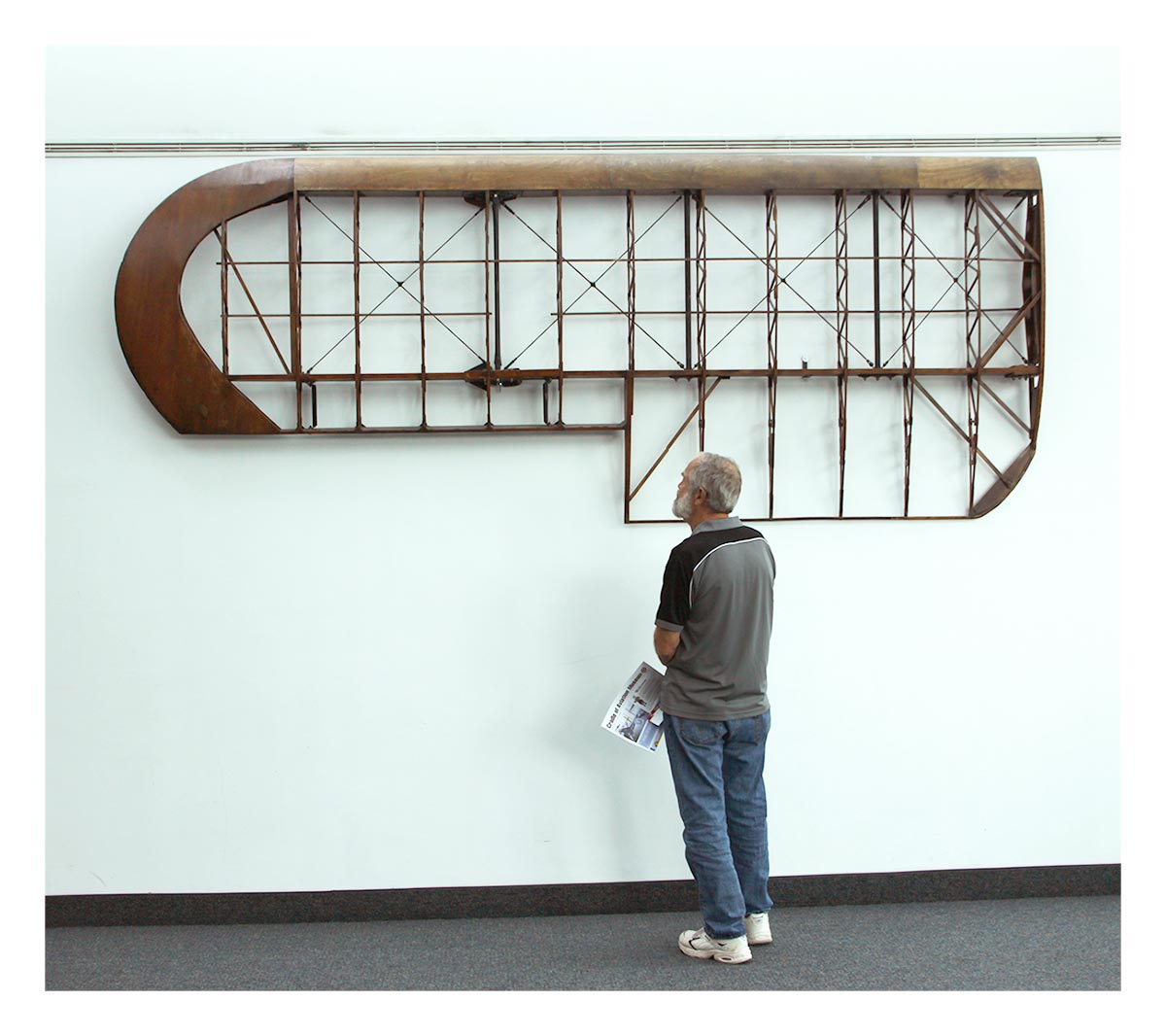
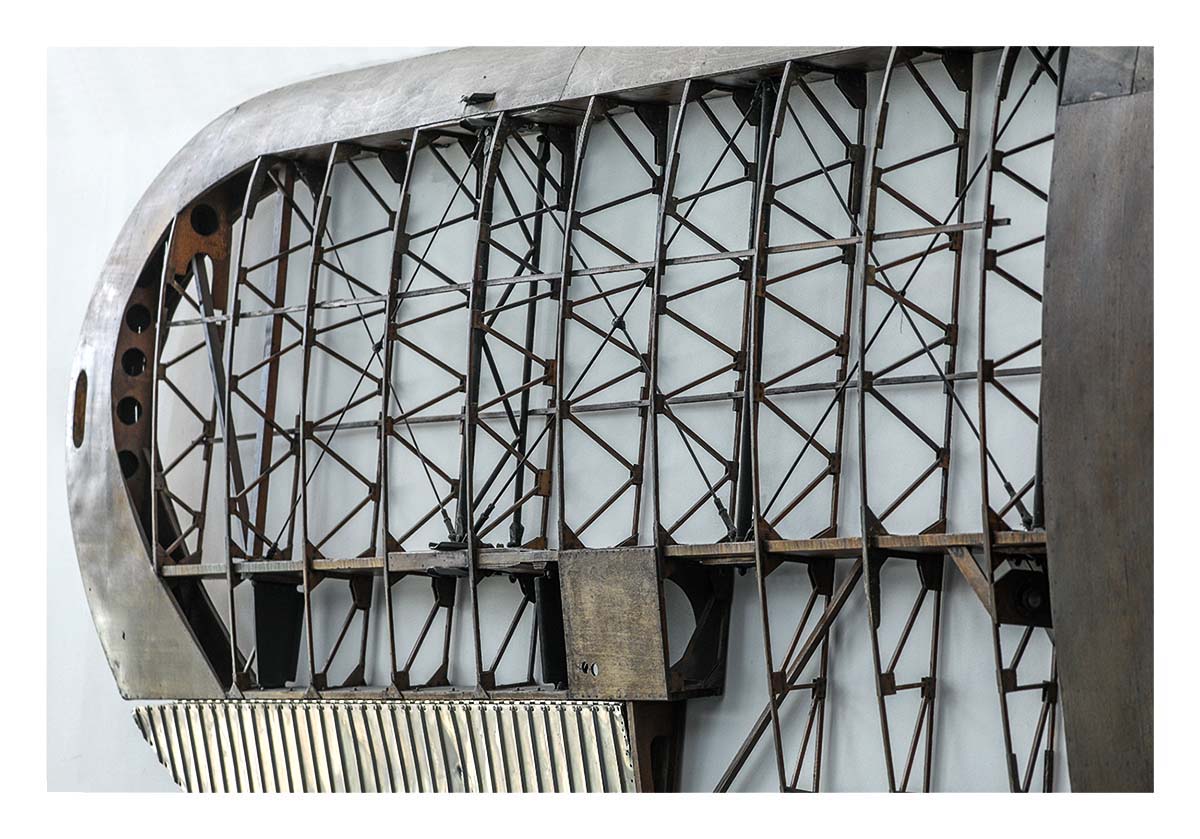
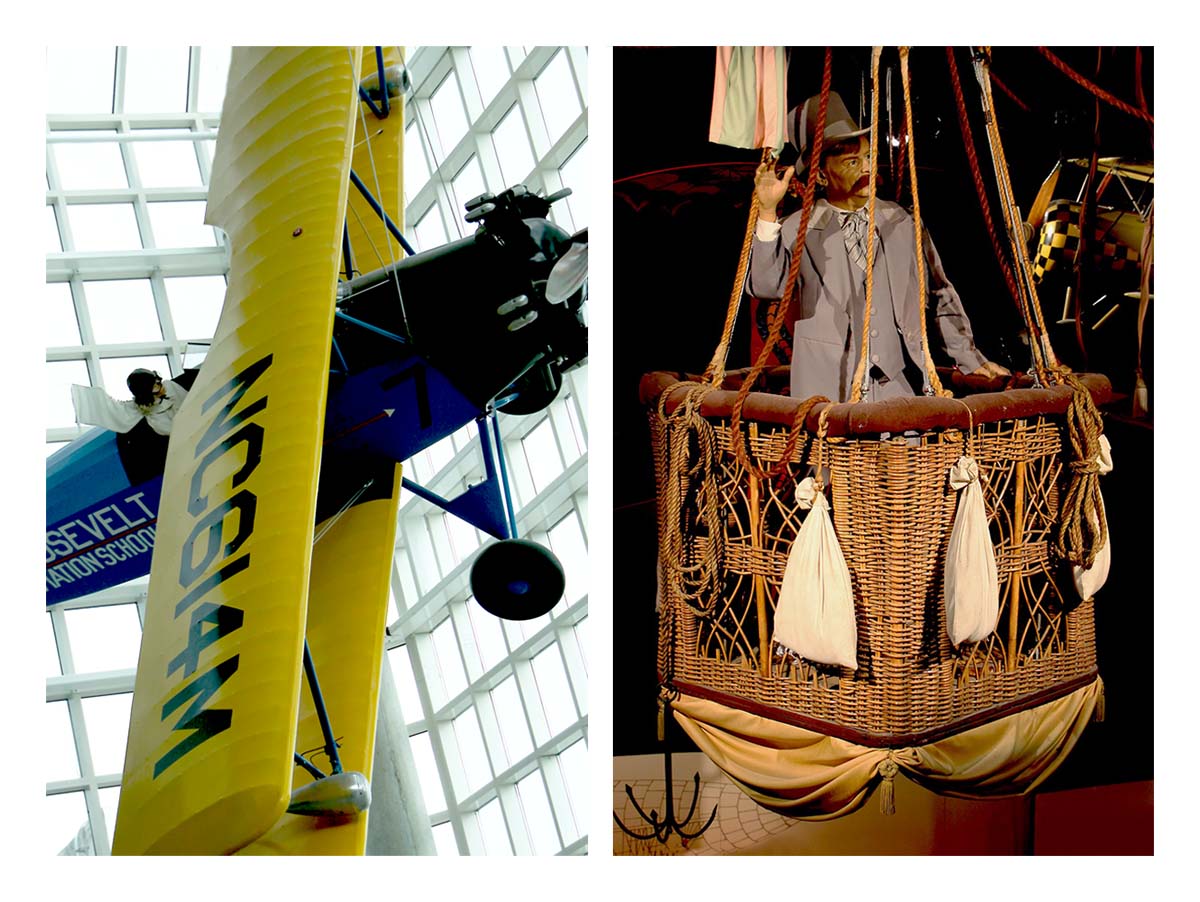
Left: Fleet Model 2 biplane was a primary flight trainer at the Roosevelt Aviation School, Long Island, New York, one of the leading civilian aviation schools in the U.S. in the 1930s. Right: 19th Century balloon basket.
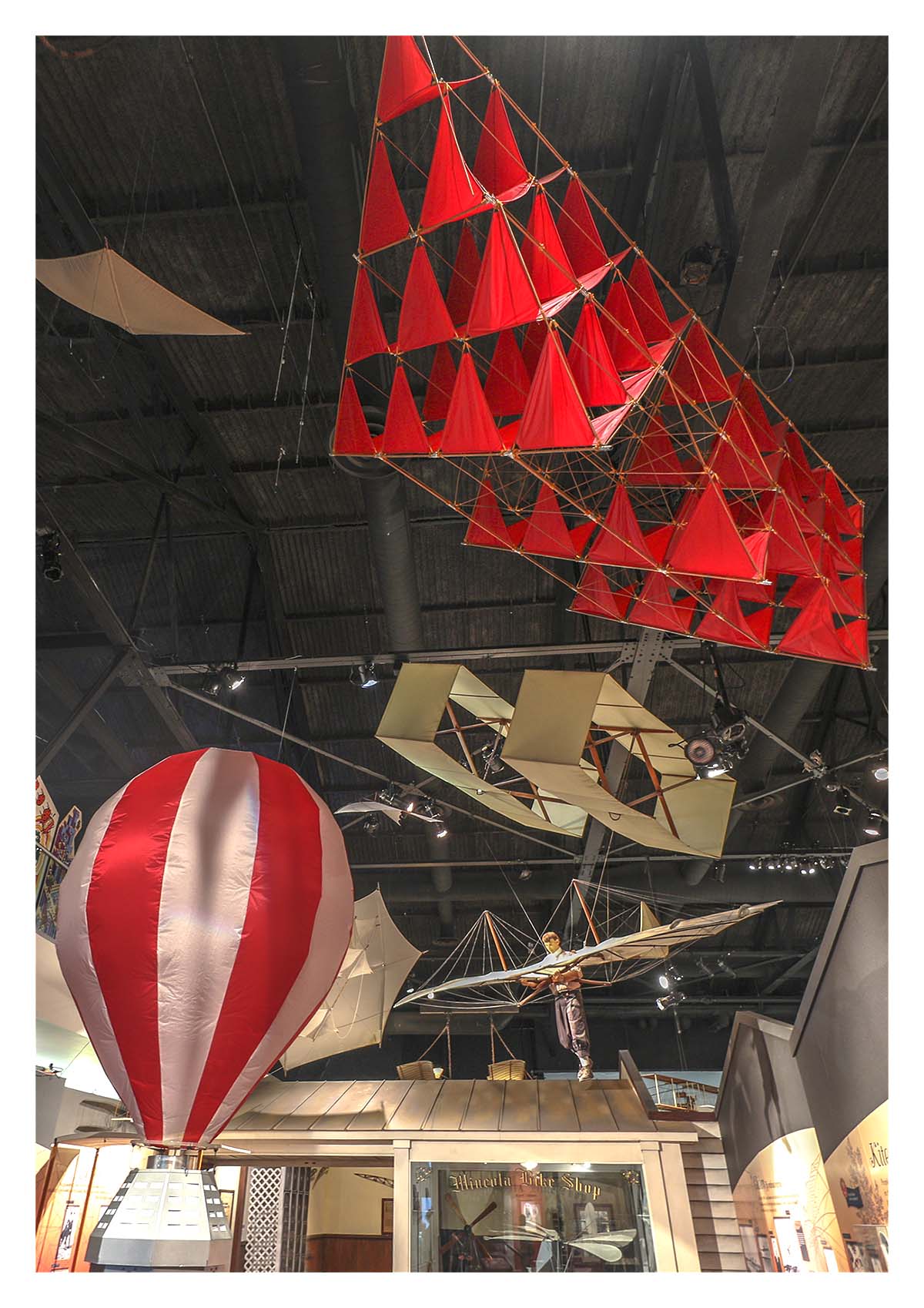
Top right is the Bell Kite replica. Yes the inventor of the telephone also experimented with aerodynamics in the 1890s. To establish a stable form of kite capable of carrying a man and an engine, Bell decided upon the tetrahedral cell kite as seen here for its structure possessing great lift as well as strength. Below right is the Hargrave Kite replica and Lilienthal Glider replica.
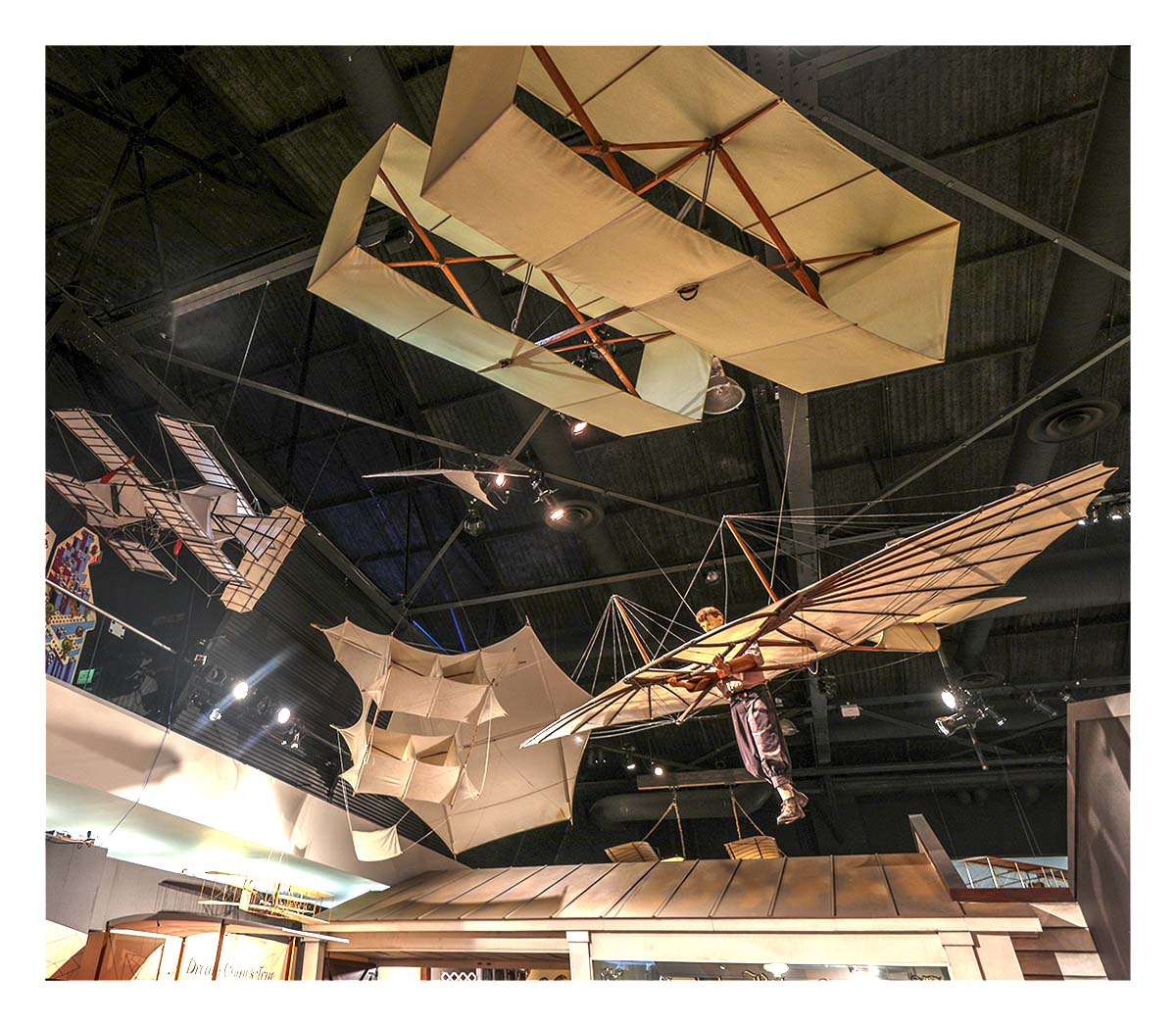
Closewise ftrom the top is the Hargrave Kite replica, Lilienthal Glider replica, Cody Kite, Marconi Kite (right behind the Cody Kite) and ???
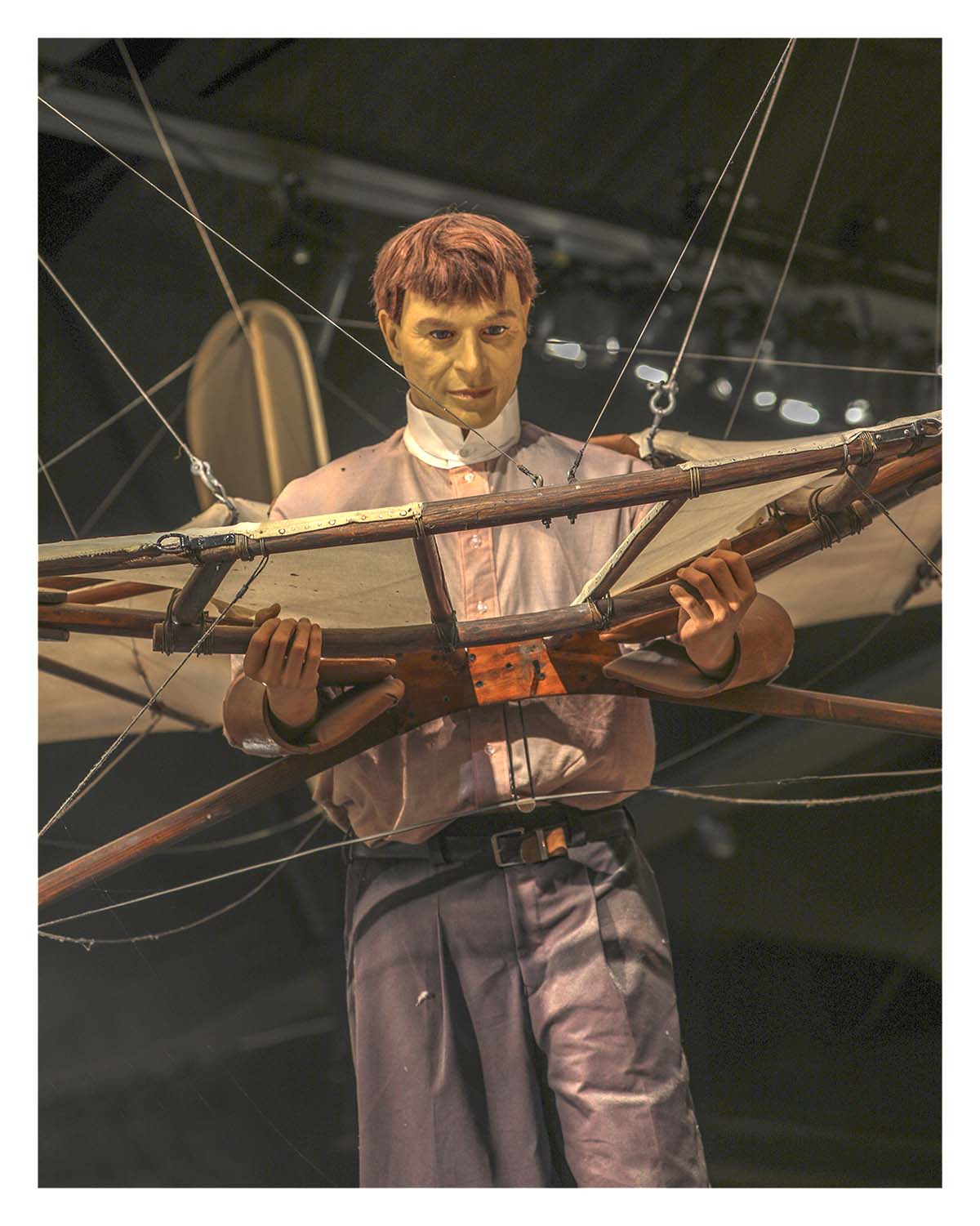
Lilienthal Glider replica (Germany 1894).
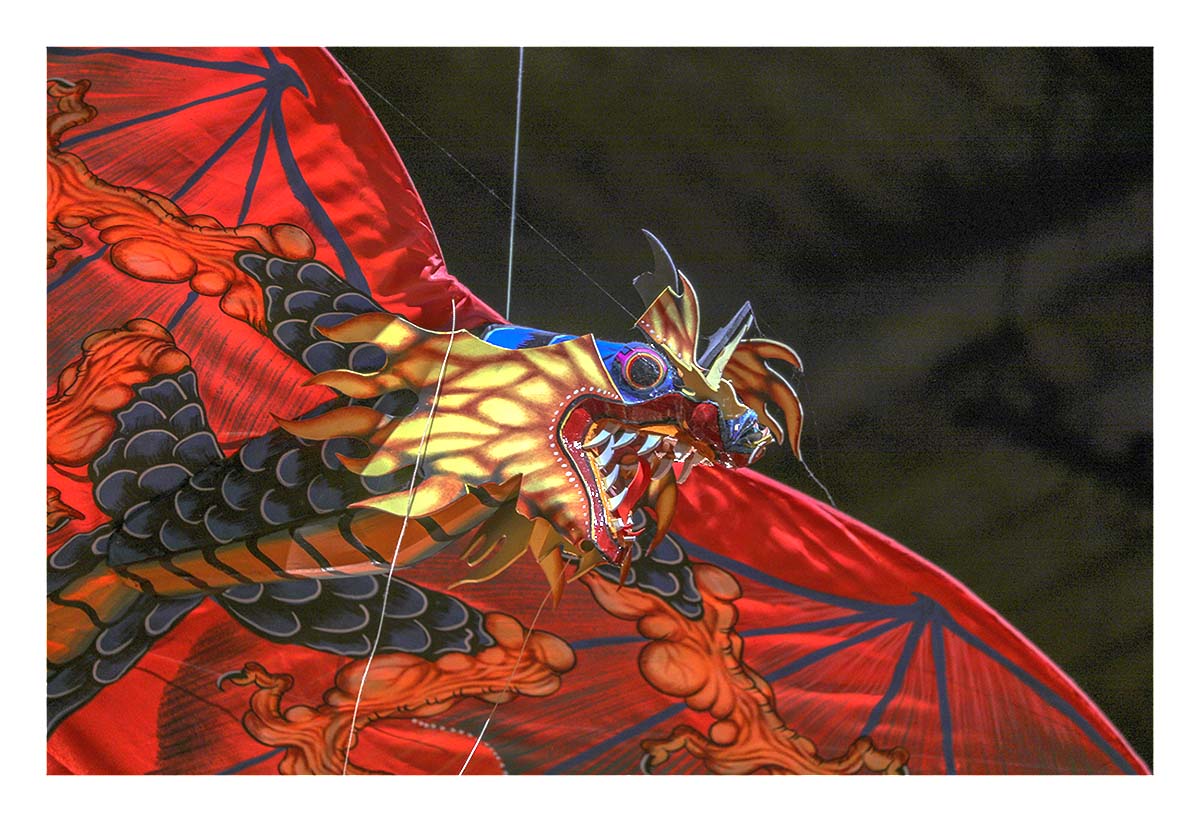
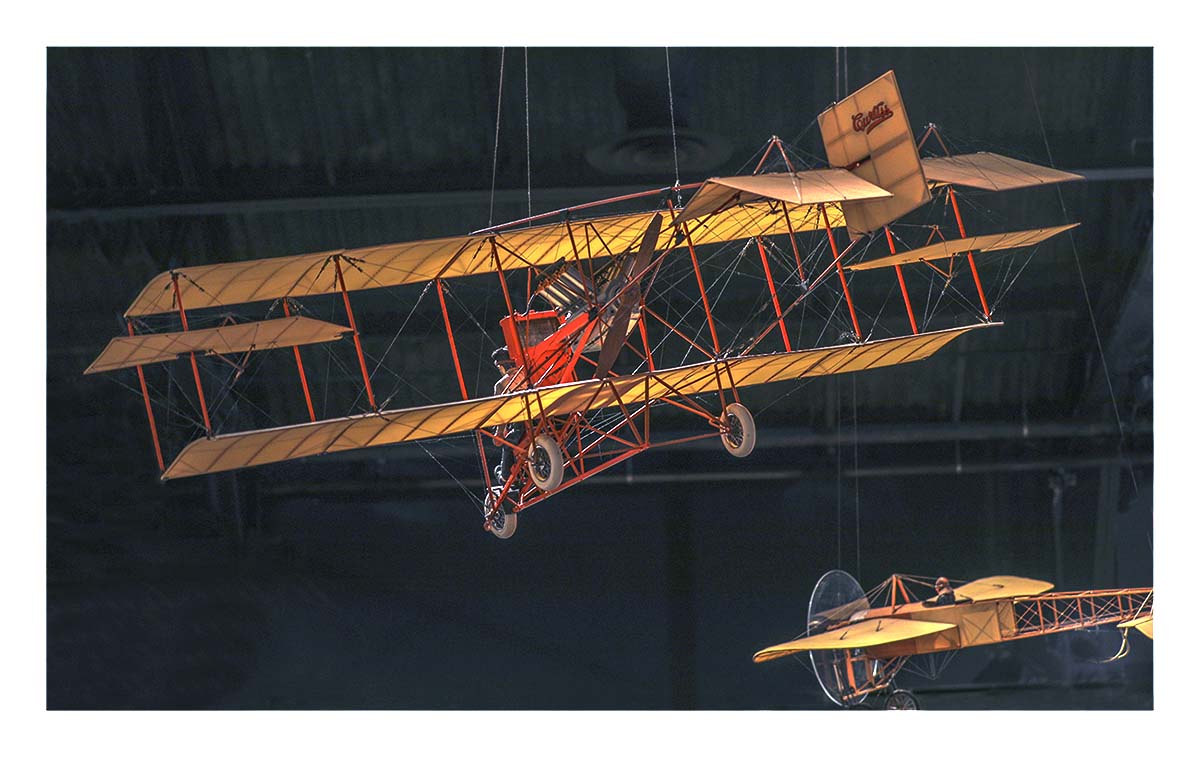
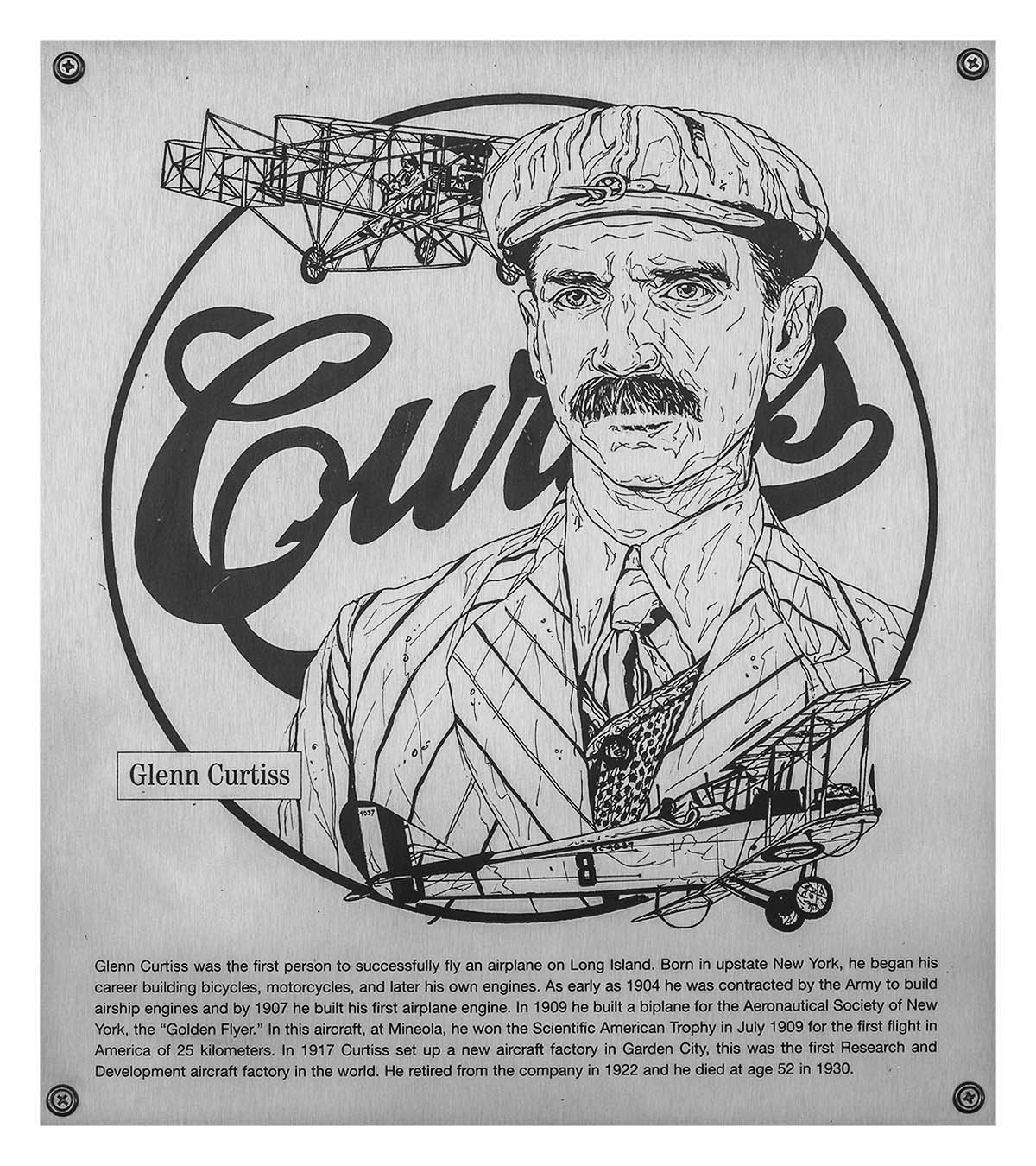
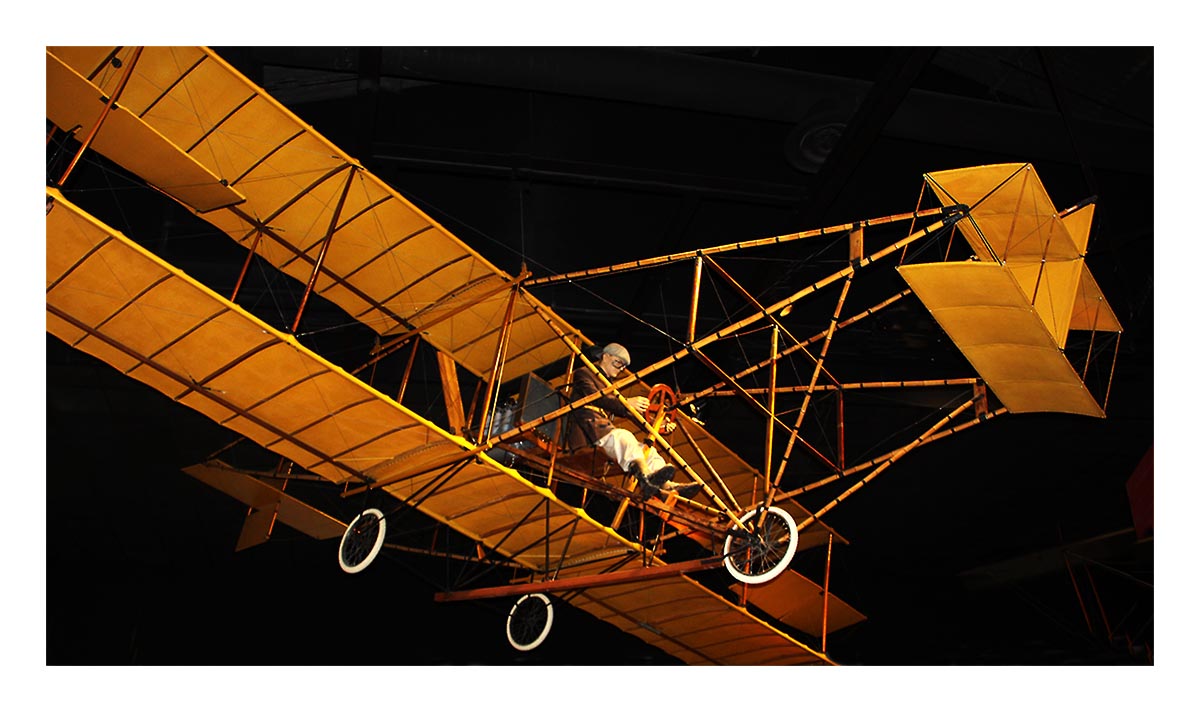
Replica of Herring-Curtiss No.1 Golden Flyer. Known as the Curtiss Gold Bug or Curtiss Golden Flyer, it was was an experimental aircraft and first independent aircraft designed and built by Glenn Curtiss.
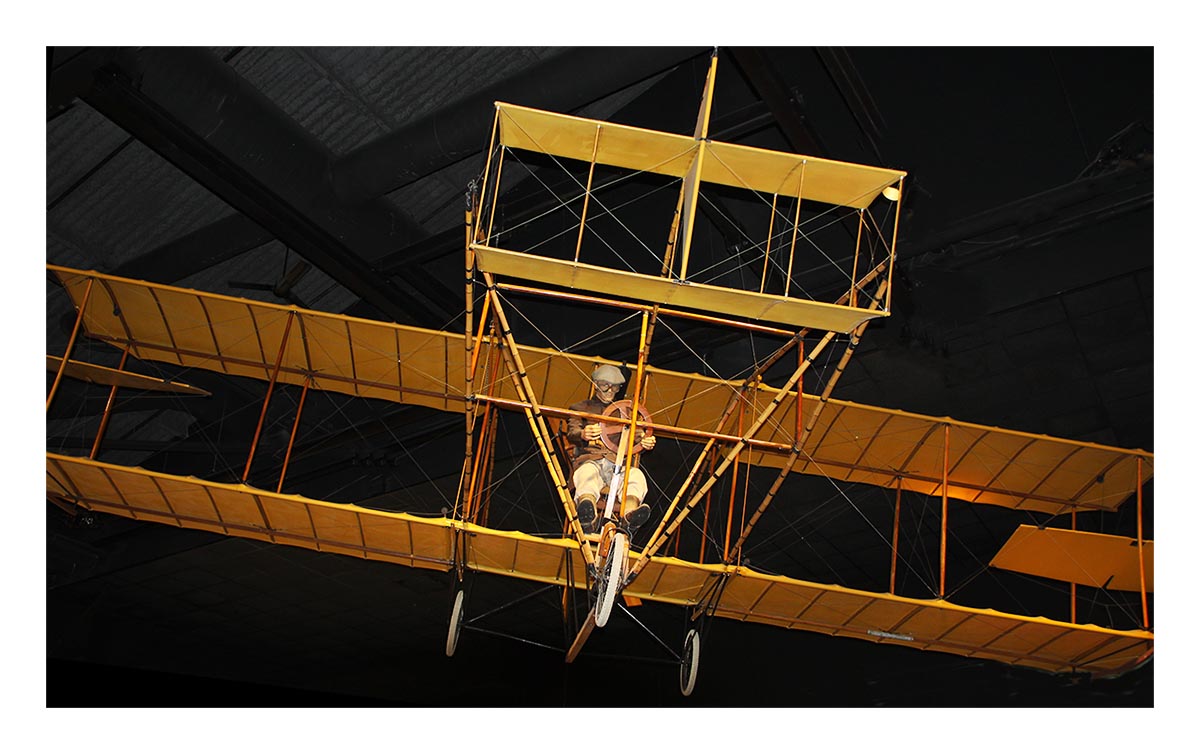
Replica of Herring-Curtiss No.1 Golden Flyer. Known as the Curtiss Gold Bug or Curtiss Golden Flyer, it was was an experimental aircraft and first independent aircraft designed and built by Glenn Curtiss.
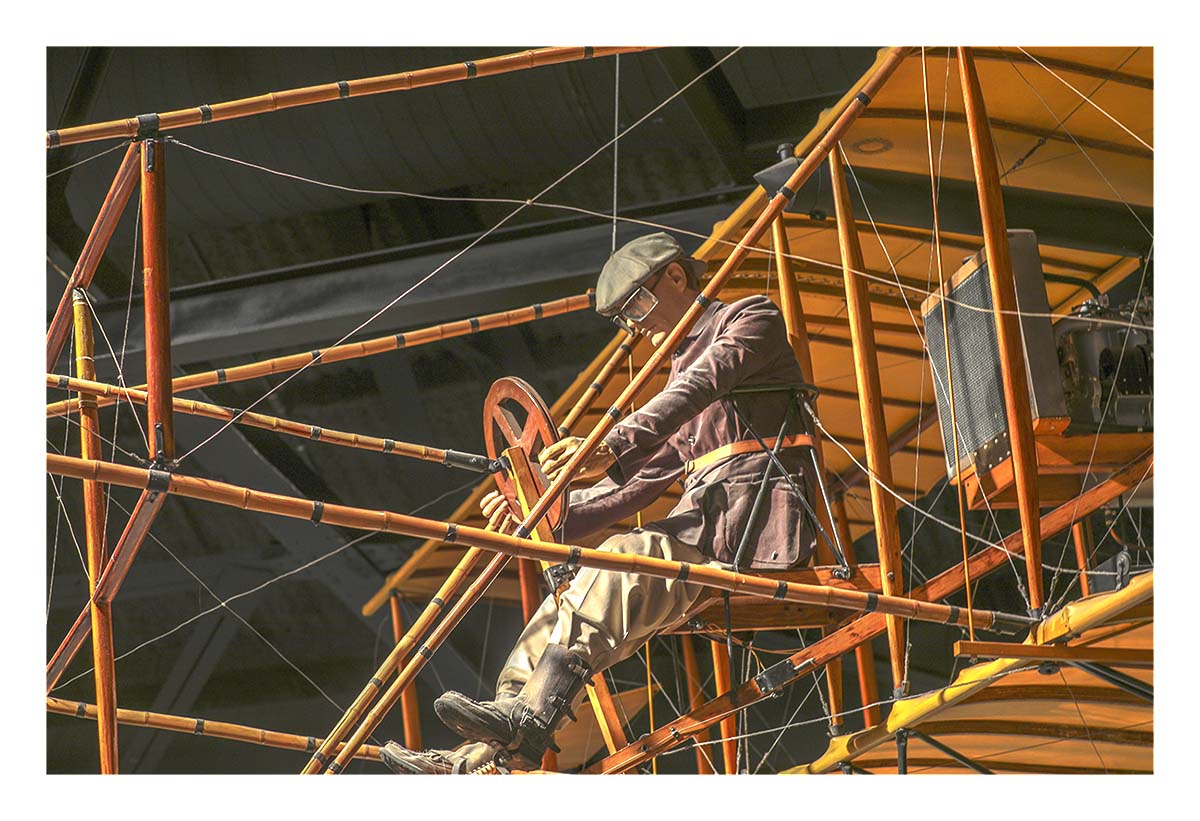
Replica of Herring-Curtiss No.1 Golden Flyer. Known as the Curtiss Gold Bug or Curtiss Golden Flyer, it was was an experimental aircraft and first independent aircraft designed and built by Glenn Curtiss.
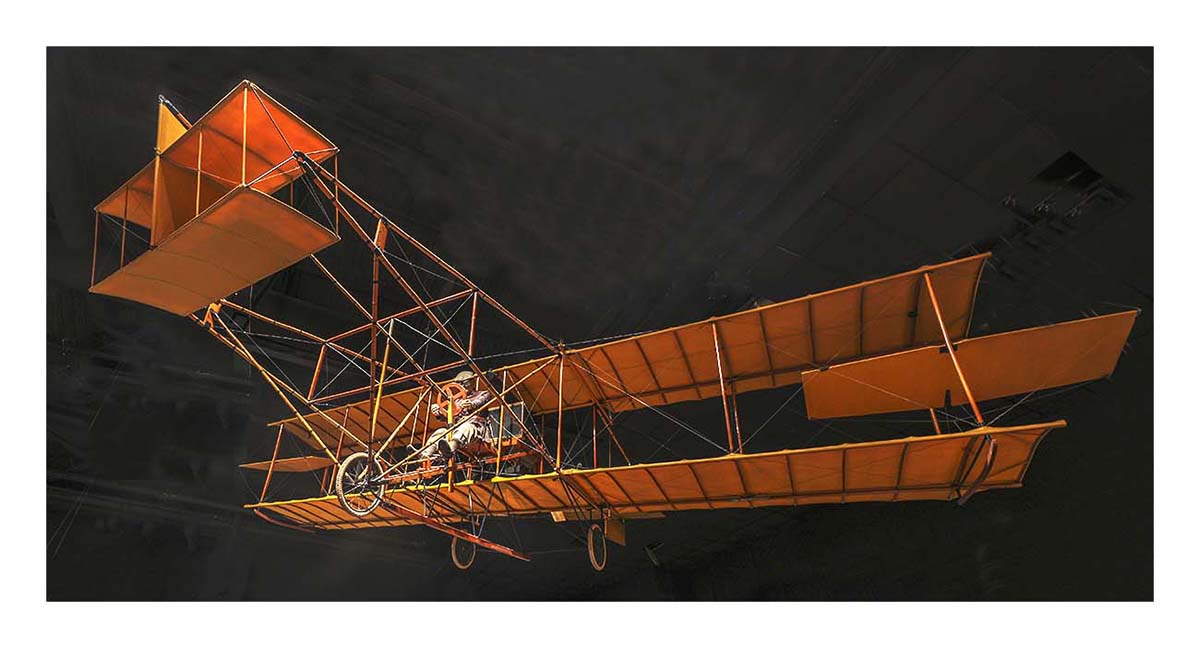
Replica of Herring-Curtiss No.1 Golden Flyer. Known as the Curtiss Gold Bug or Curtiss Golden Flyer, it was was an experimental aircraft and first independent aircraft designed and built by Glenn Curtiss.
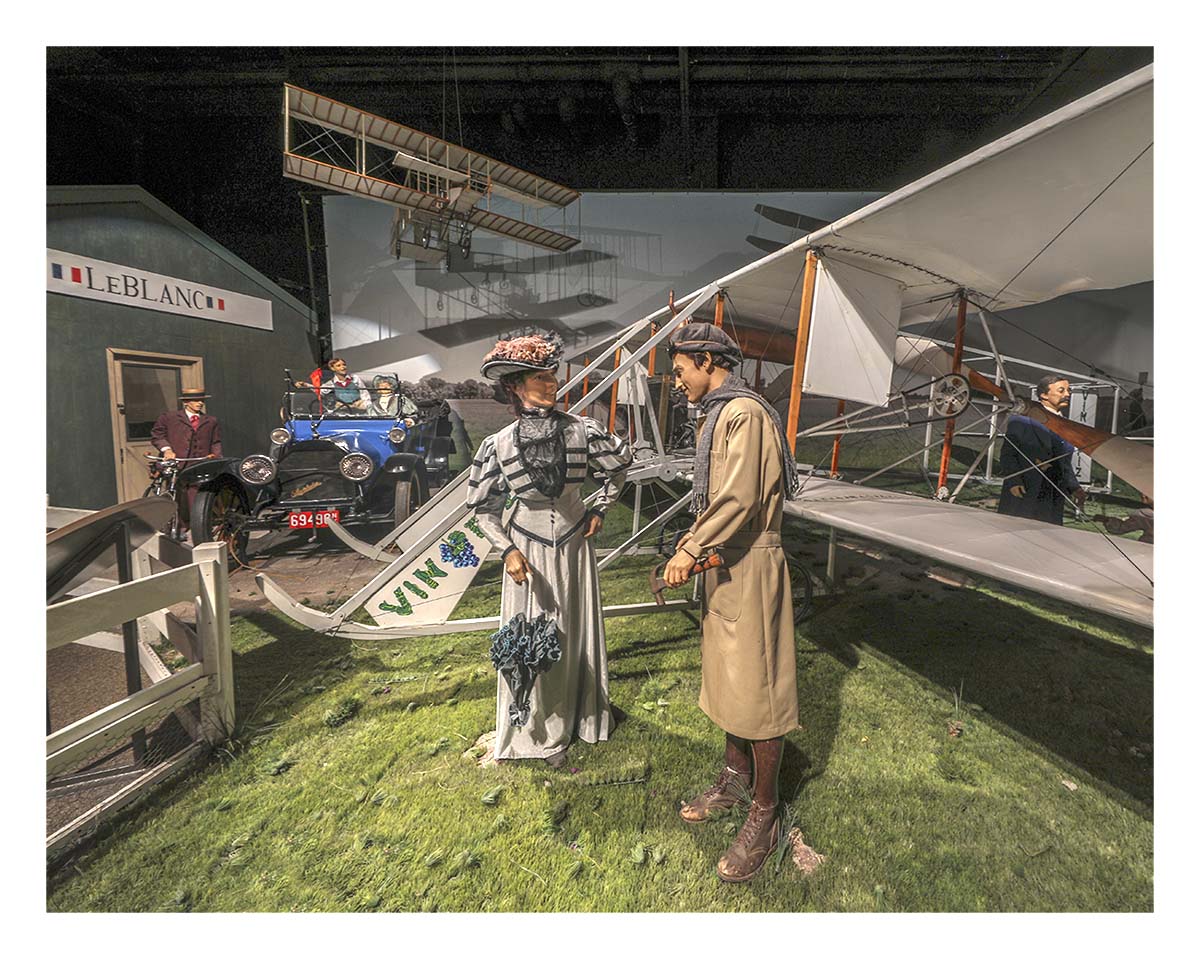
Scene: the 1911 Air Meet on the Hempstead Plains with the Wright EX "Vin Fiz" replica. Sponsored by a company promoting its new grape soda, "Vin Fiz," Calbraith Rogers took off from Sheephead Bay, Brooklyn, in an attempt to win a prize by flying across the country in 30 days or less. Dispite failing, the flight showcased the potential of the airplane.
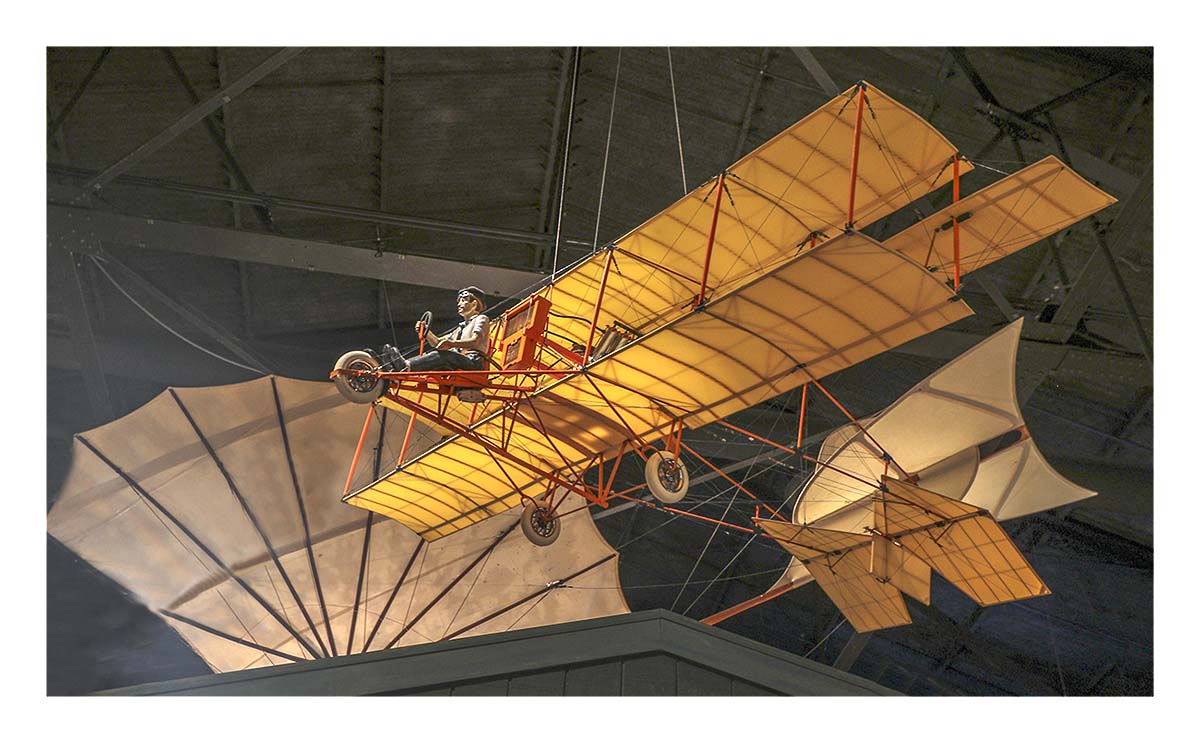
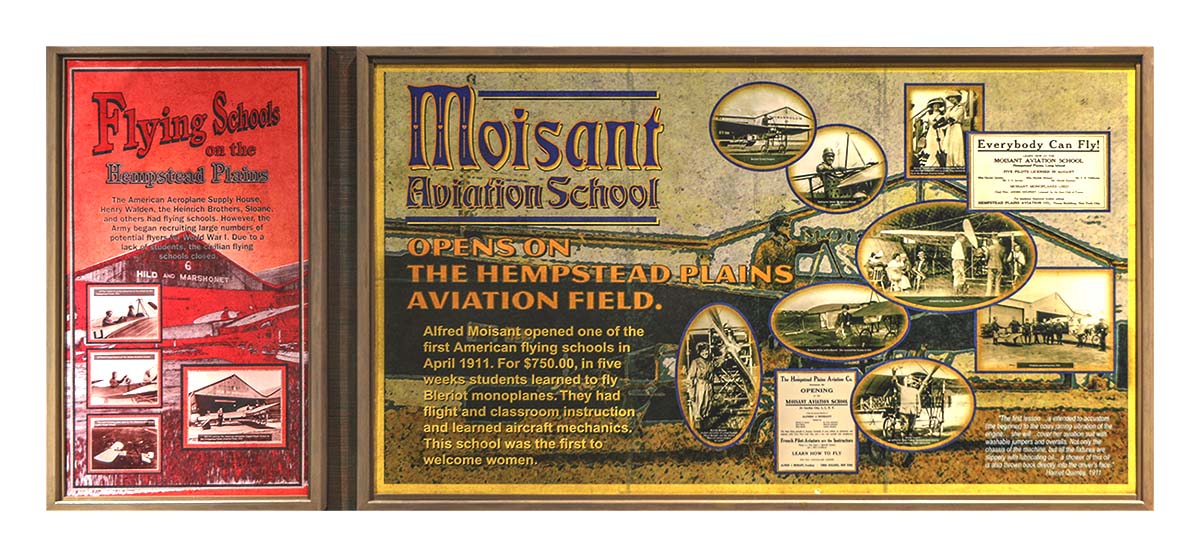
Moisant School at Mineola: One of the earliest flying schools in America. Bleriots (see below) were used by the school.
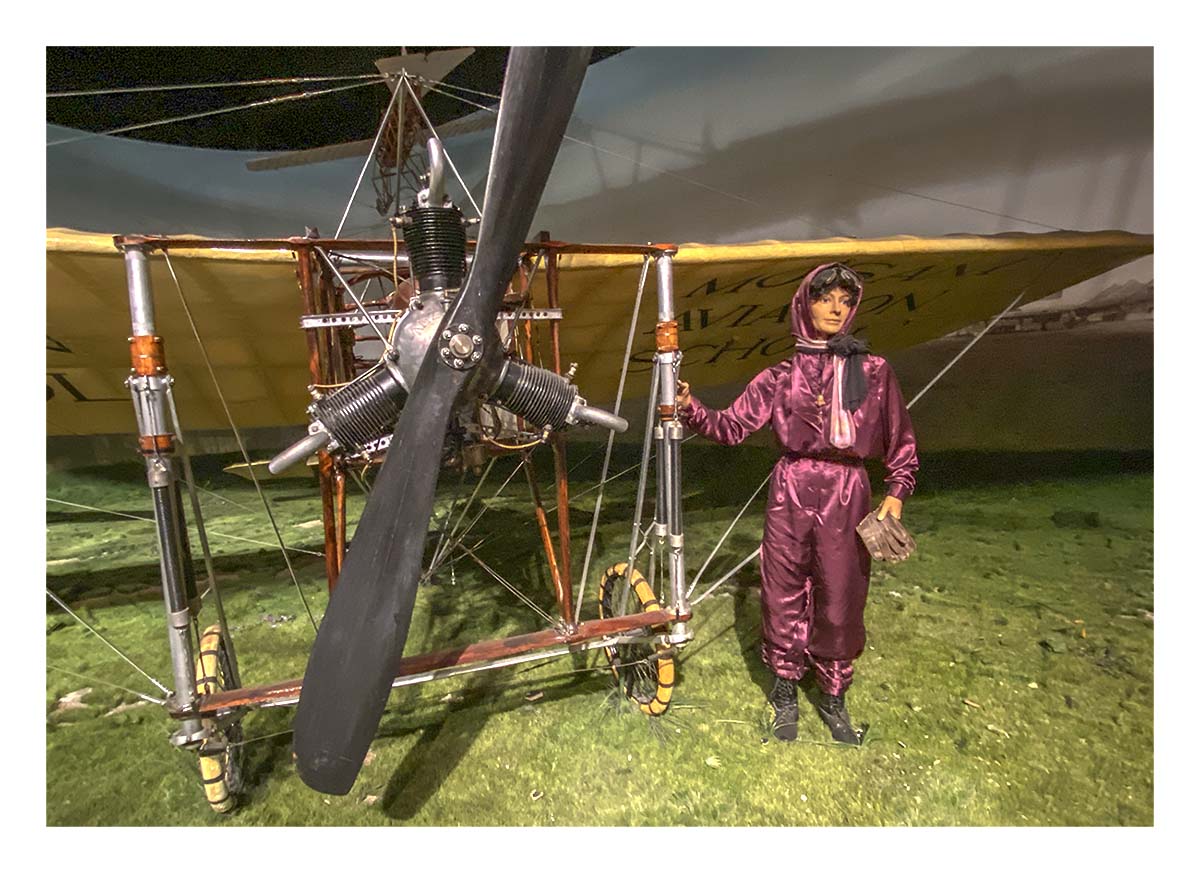
1909 Bleriot Type XI. This original Bleriot is one of the oldest airplanes in the world, while the Bleriot was the first airplane to cross the English Channel (1909). Posing with the Bleriot is Harriet Quimby. Known as the "Dresden Doll Aviatrix" by her fans, she was the first woman to fly across the English Channel in 1912.
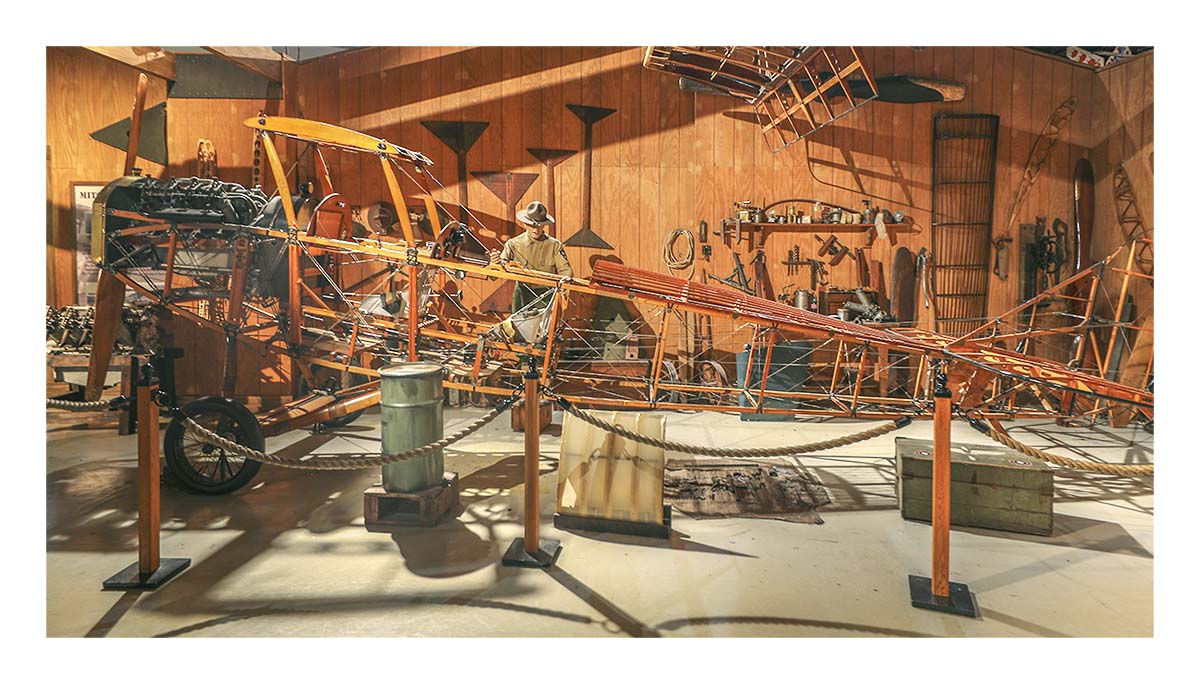
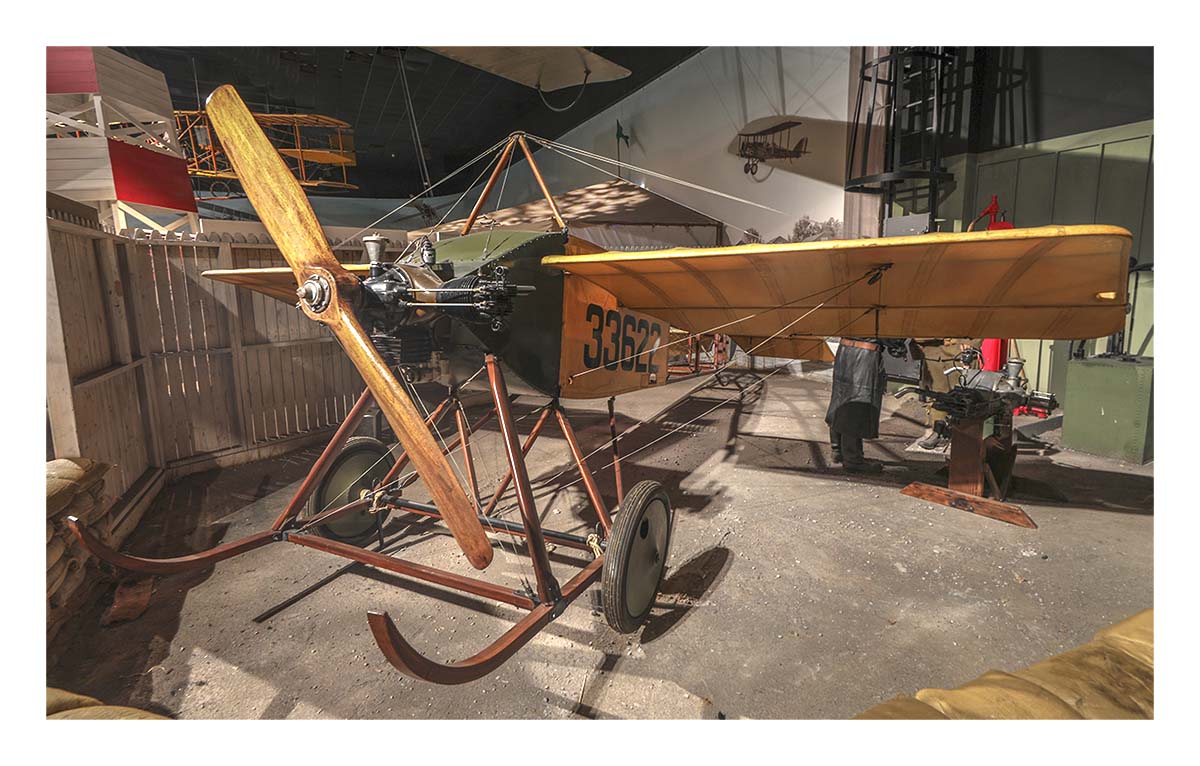
This Breese Penguin (1918) is the sole survival of a WWI Army non-flying trainer. Built by Breese Aircraft Company of Farmingdale, Long Island, New York, 300 trainers called the "Penguins" were contracted and actually equipped with a Lawrance engine, another Farmingdale Company.
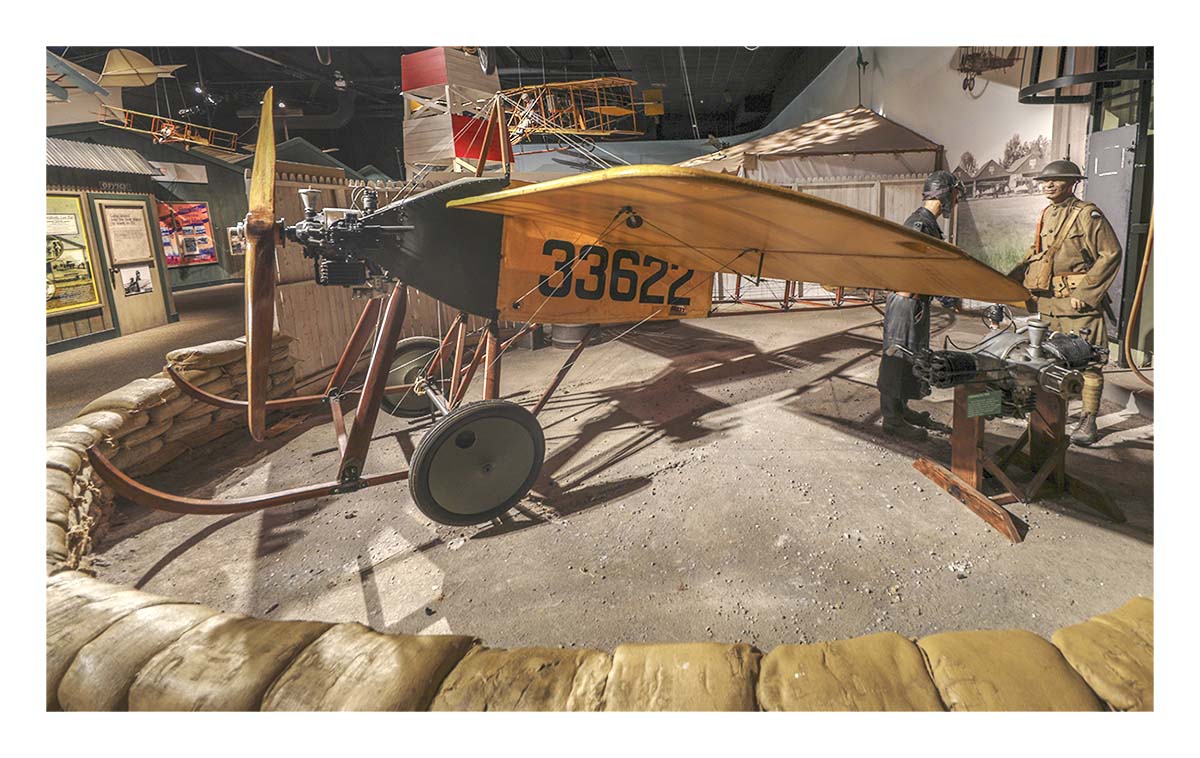
Breese Penguin.
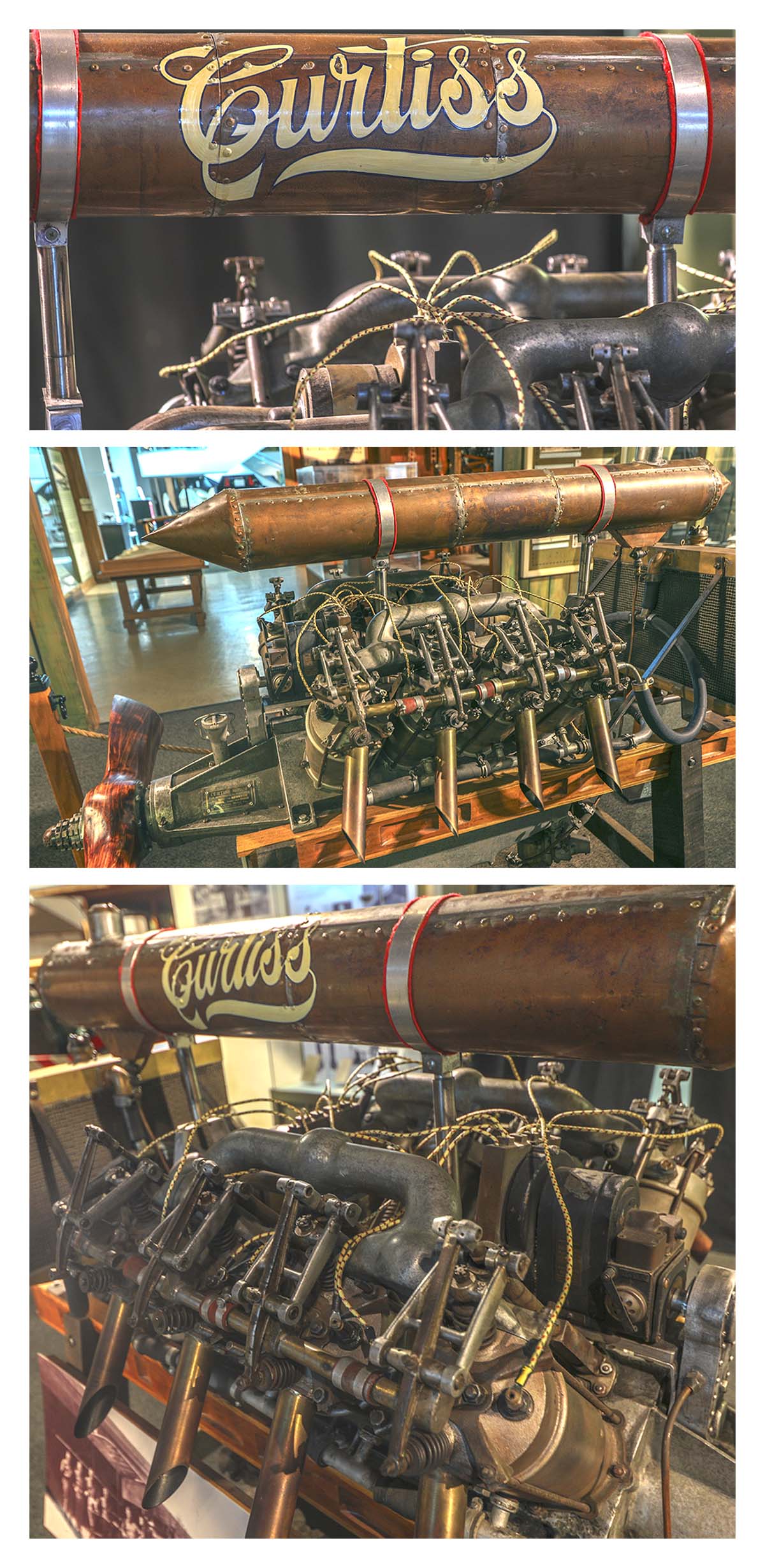
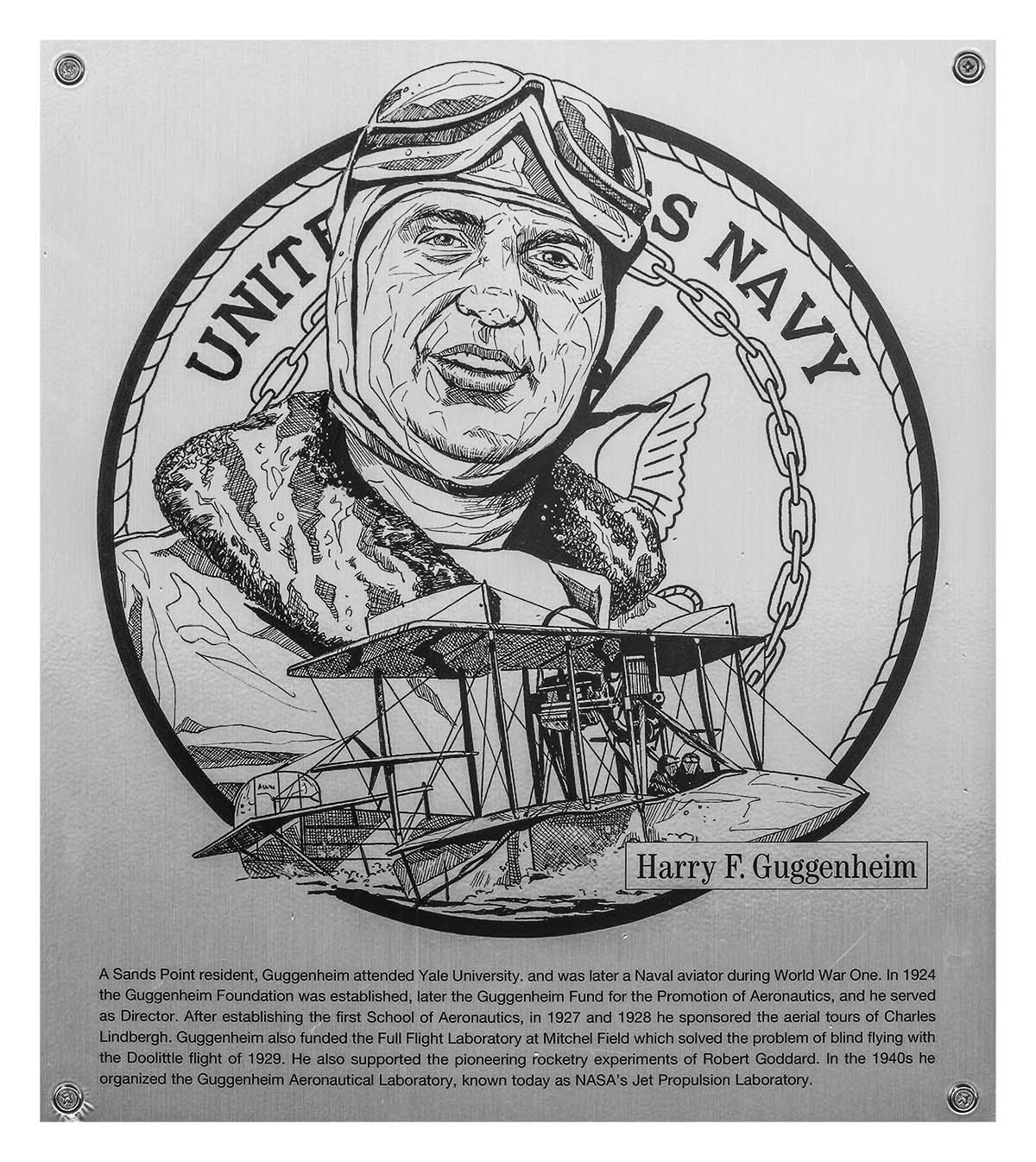
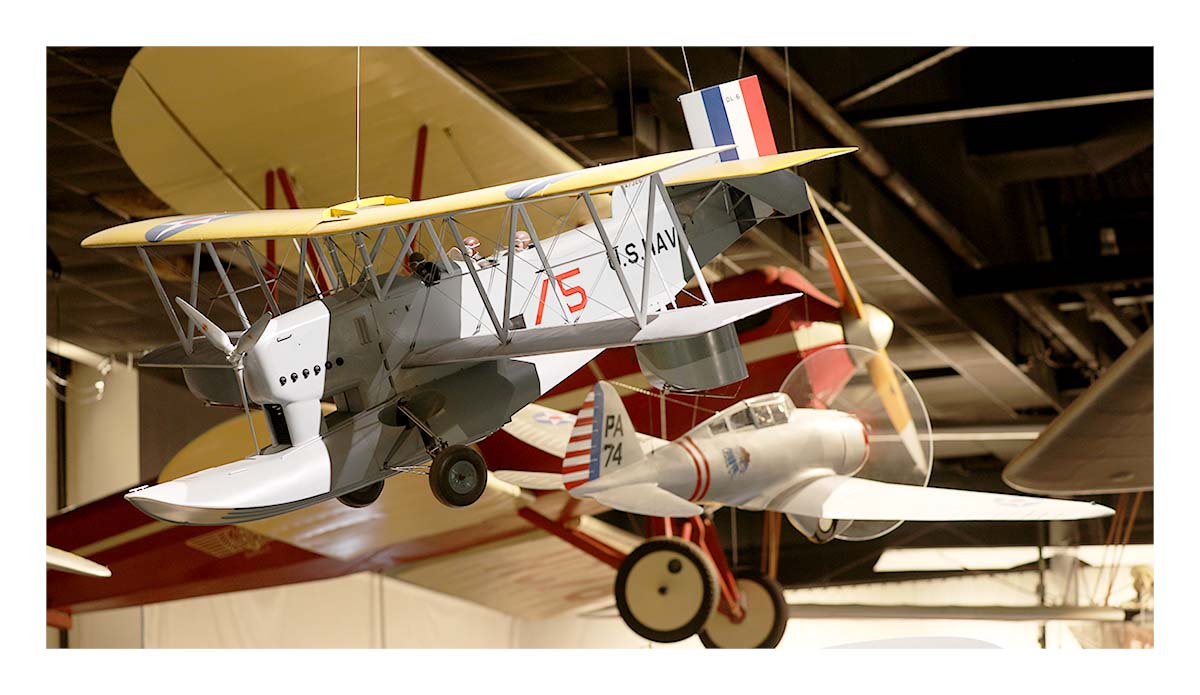
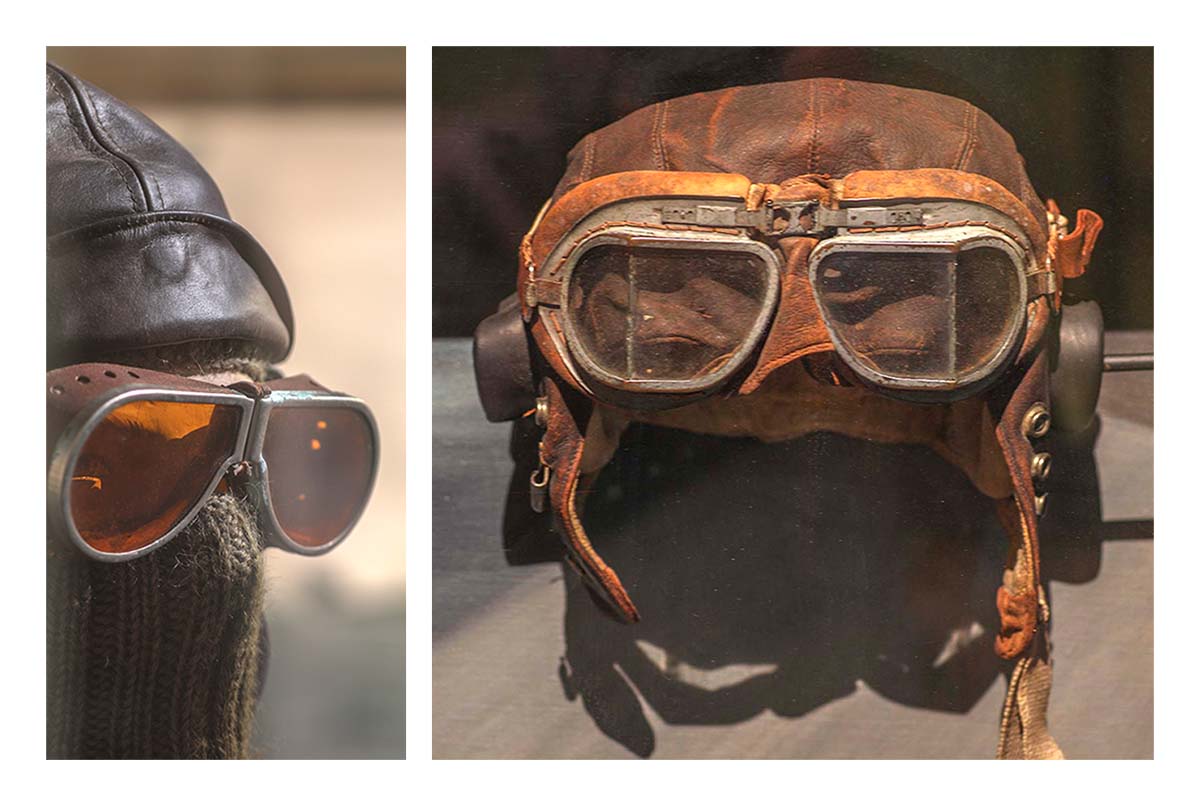
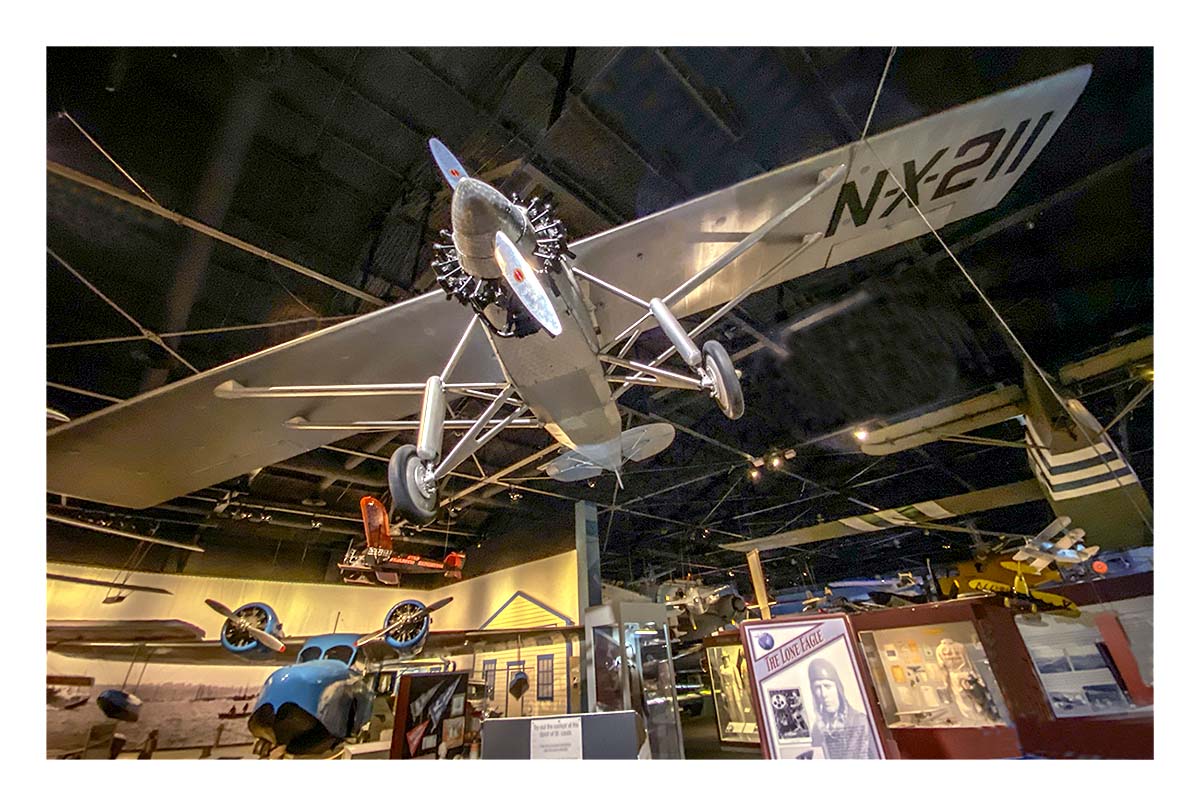
On display here is the Ryan NYP "Spirit of St. Louis," one of two surviving sister ships of the original "Spirit of St. Louis. Built in 1928 by Ryan along identical lines of the original in an attempt to sell them commercially. This particular plane on display was used in the 1955 movie, "The Spirit of St. Louis.""
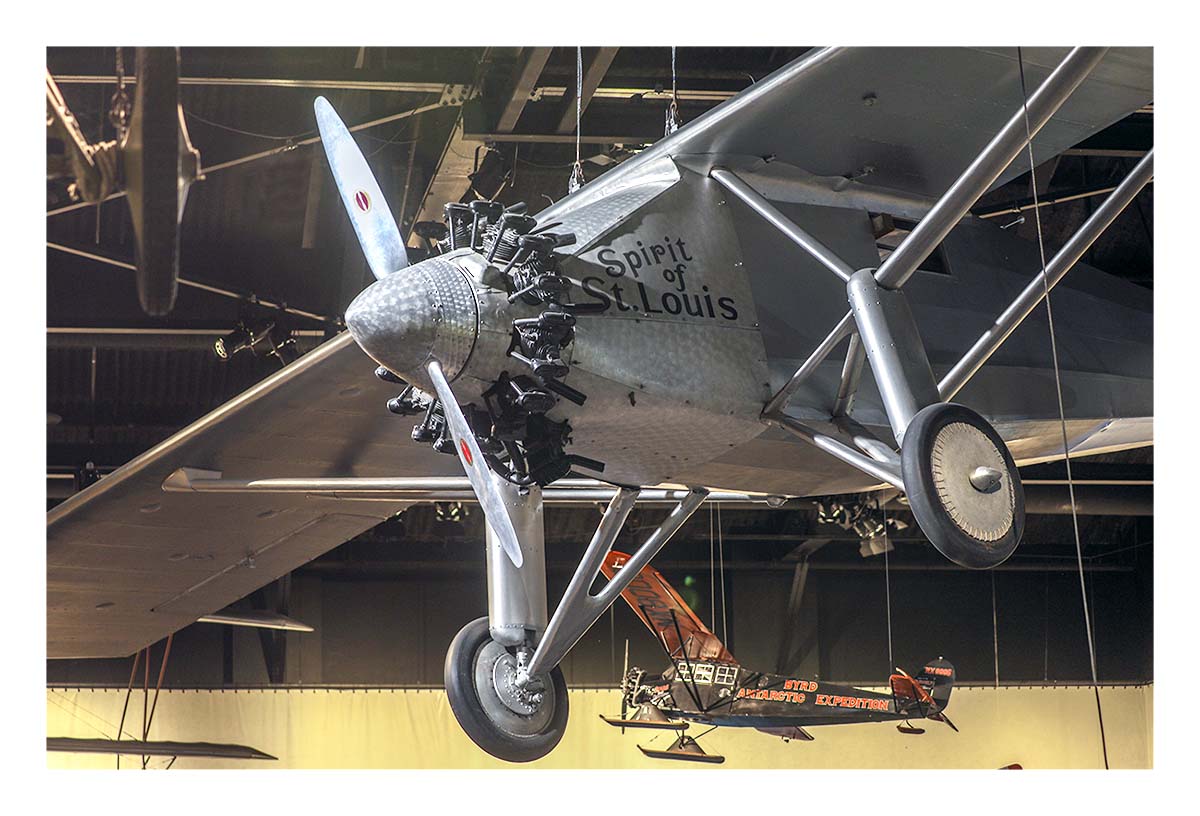
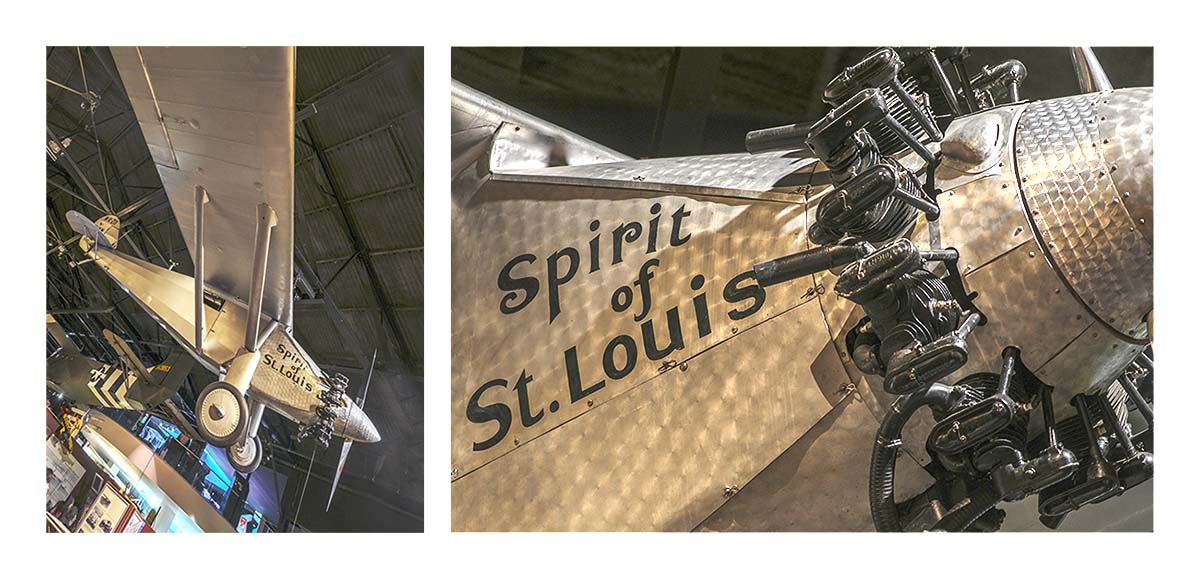
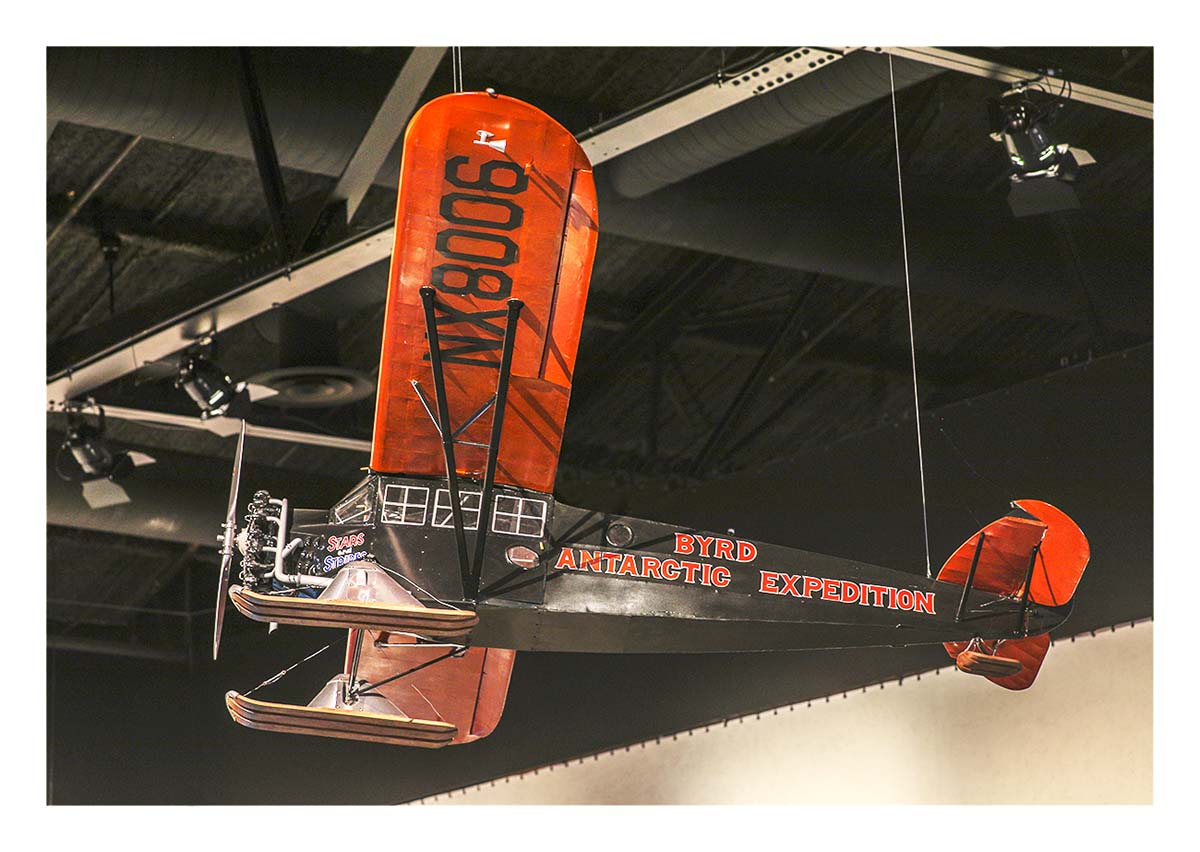
Model of the Fairchild FC-2W2 Stars and Stripes. Named Stars and Stripes by Lt. Commander Richard E. Byrd, he flew mapping and reconnaissance flights on the first and second Byrd Antarctic expeditions.
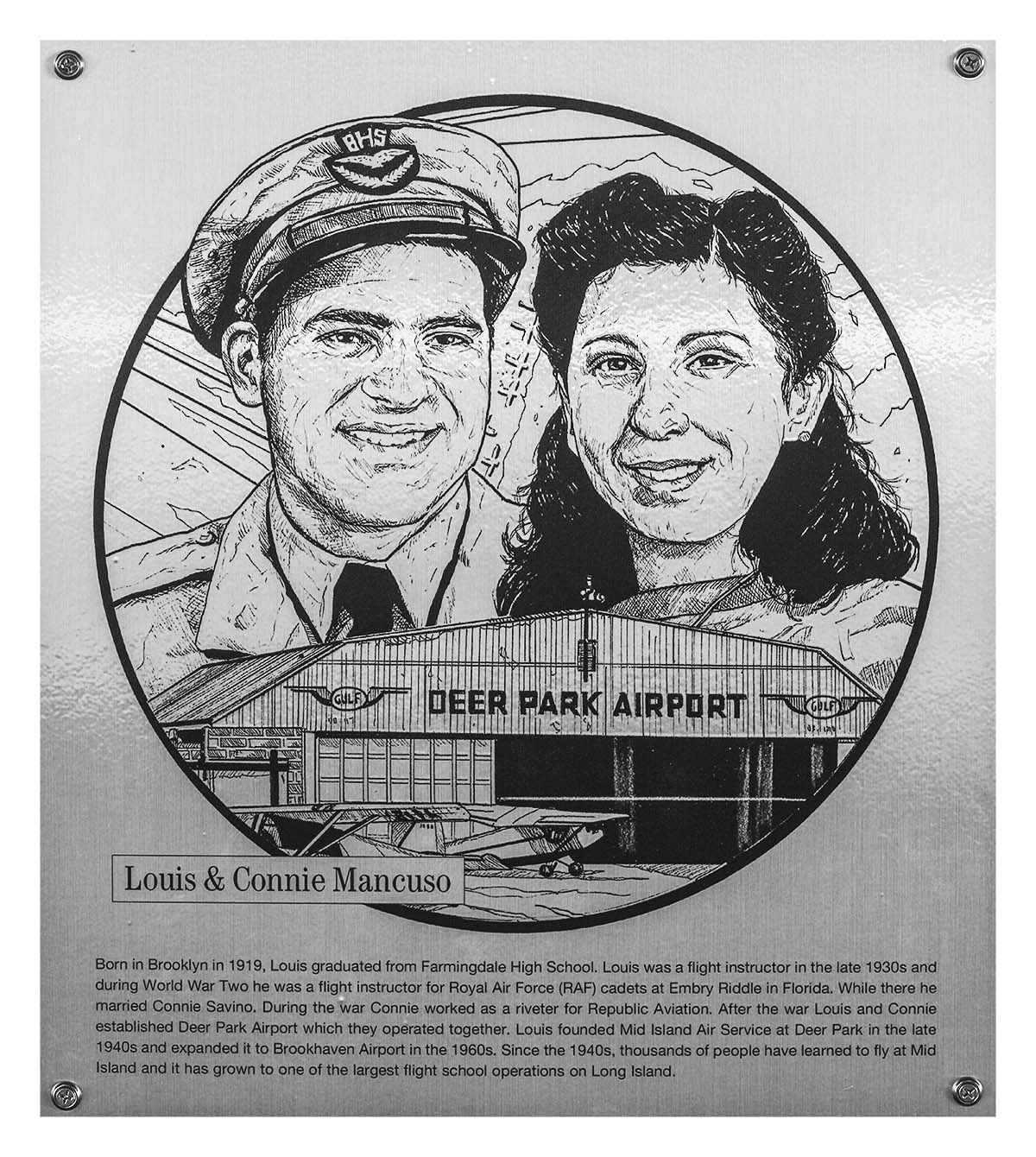
It's hard to believe not that long ago Long Island was dotted with numerous community air fields and airports.